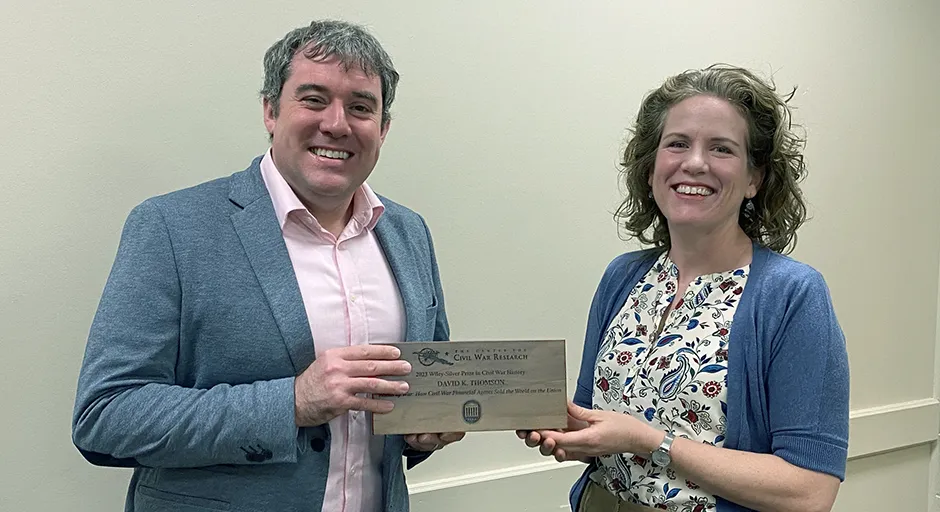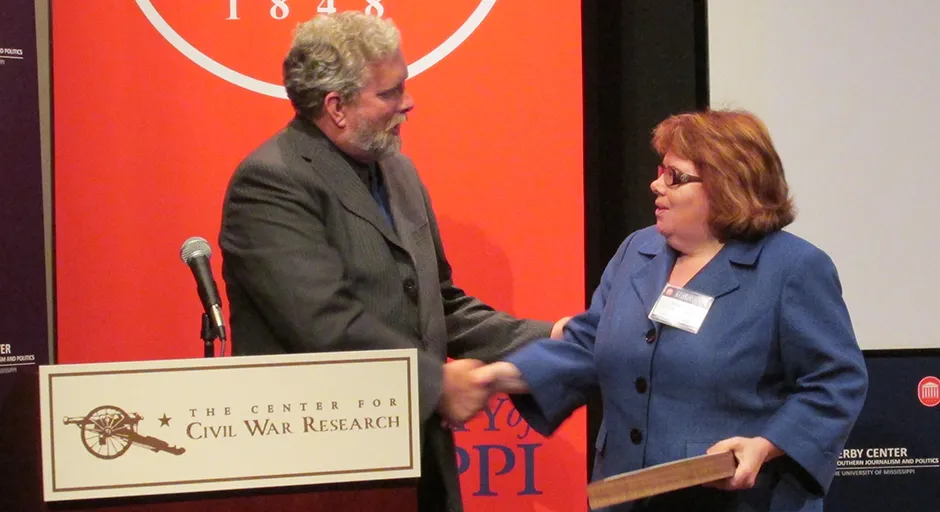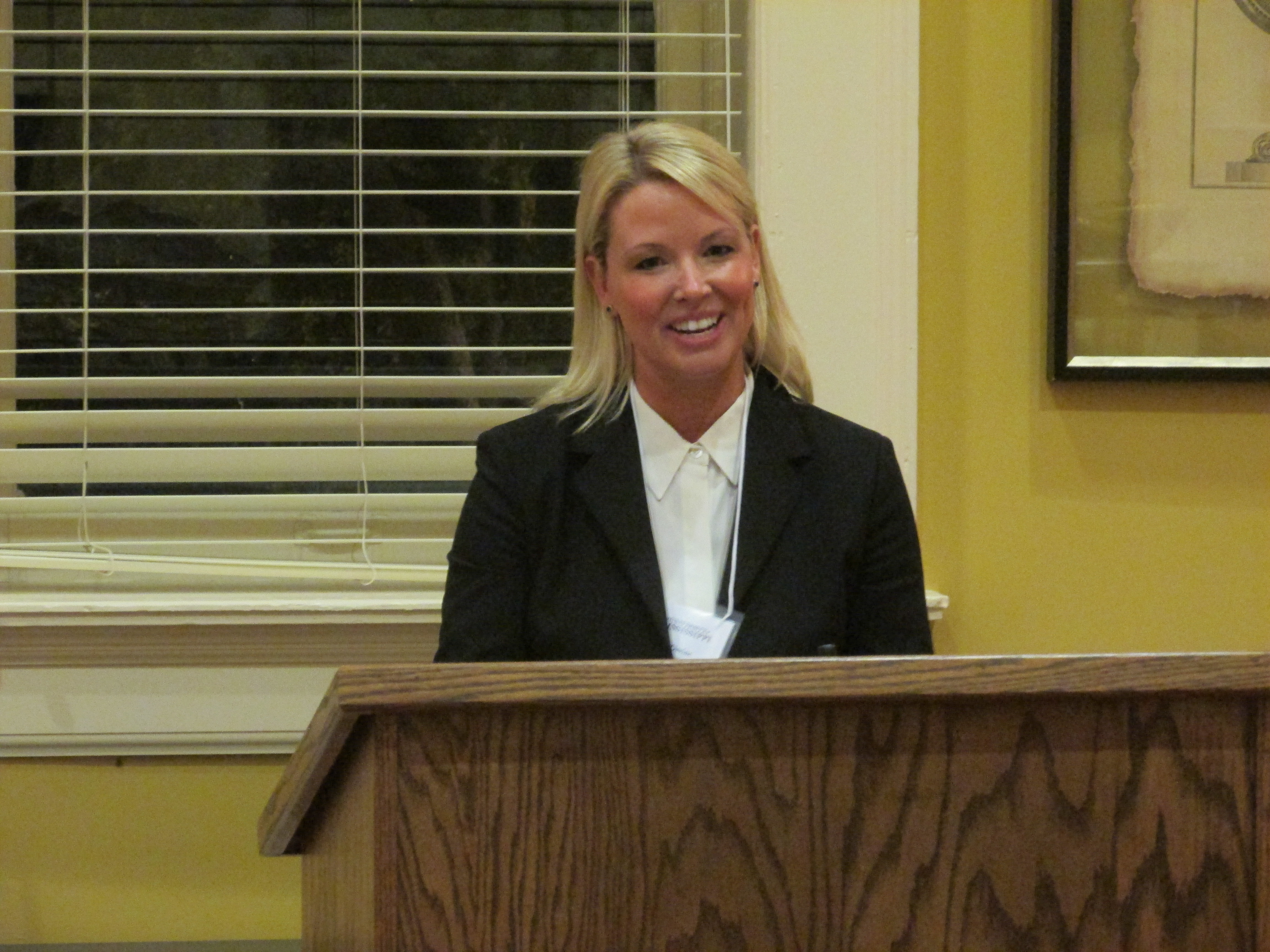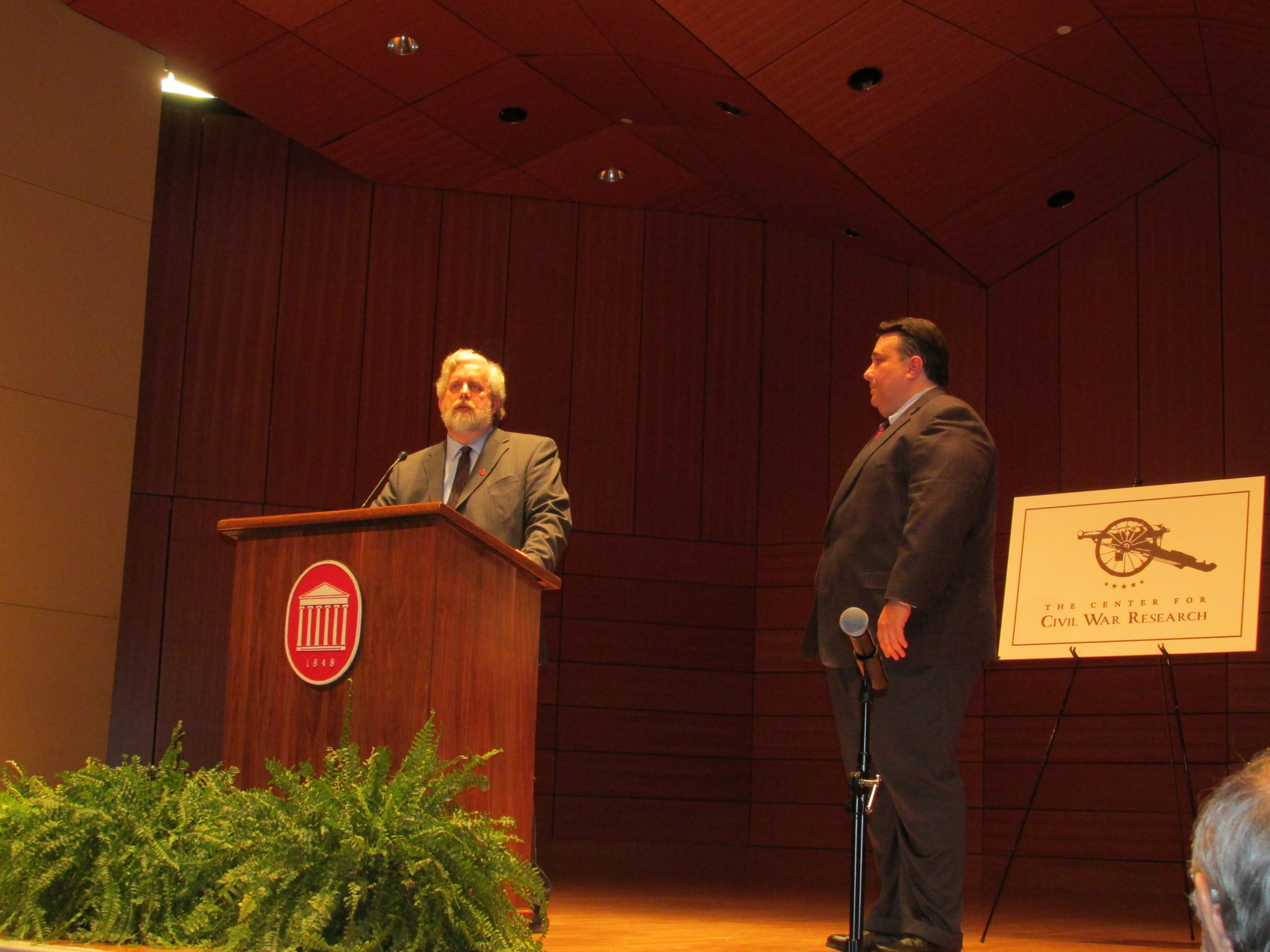About the Prize
The Center for Civil War Research established the Wiley-Silver Prize in Civil War History in 2011. The Center presents the prize to the best first book, thereby recognizing and encouraging new and emerging scholars in the history of the American Civil War. The prize is named for two distinguished former members of the University's History Department faculty, Bell Irvin Wiley and James W. Silver.
Scholars awarded the prize receive $2000 and an invitation to speak at the University with an additional $500 honorarium. In addition to press releases, the Center also purchases advertising space in the field's two journals, Civil War History and The Journal of the Civil War Era to announce the winning entry.
Wiley-Silver Prize Winners
2025
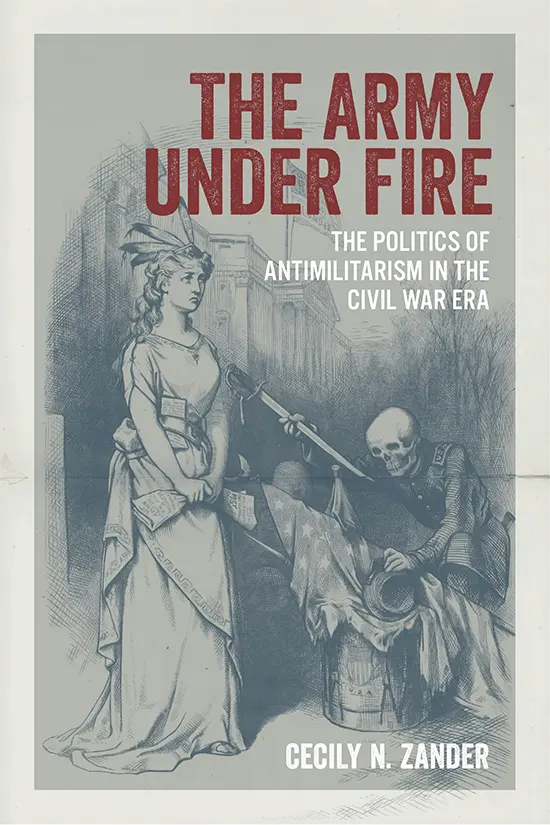
Cecily Zander for The Army Under Fire: The Politics of Antimilitarism in the Civil War Era (Louisiana State University Press). Dr. Zander is an Assistant Professor of History at Texas Woman’s University and a Senior Fellow at Southern Methodist University’s Center for Presidential History.
The prize committee praised Dr. Zander’s book as follows: “Cecily Zander’s The Army Under Fire rehabilitates antimilitarism as a central but underappreciated attribute of nineteenth-century American life. Well-written and persuasively argued, the book enhances our understanding of the causes of the Civil War, the ways in which Union armies fought, and why Reconstruction was, paradoxically, a limited revolution. Above all, Zander offers readers a sobering yet necessary reflection on the constraints of what could be achieved during the Civil War period. While it's common to regret the "lost moments " of fully realizing the goals of Union and emancipation, such an outlook can fail to illuminate the reasons why and how history unfolded as it did. Perhaps, as Zander reminds us, the wartime goals as defined by the loyal citizenry were realized after all.”
Bell Irvin Wiley and James W. Silver
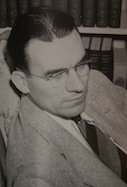 Bell Irvin Wiley, born in 1906, joined the University of Mississippi's history department in 1938, where he worked until departing for military service in 1943. Wiley is renowned for his The Life of Johnny Reb (1943) and The Life of Billy Yank (1952), as well as a number of other influential works in Civil War and southern history. By the time of his death in 1980, Wiley had authored, co-authored, and edited 24 books while serving at universities such as the University of Southern Mississippi, Louisiana State University, and Emory University.
Bell Irvin Wiley, born in 1906, joined the University of Mississippi's history department in 1938, where he worked until departing for military service in 1943. Wiley is renowned for his The Life of Johnny Reb (1943) and The Life of Billy Yank (1952), as well as a number of other influential works in Civil War and southern history. By the time of his death in 1980, Wiley had authored, co-authored, and edited 24 books while serving at universities such as the University of Southern Mississippi, Louisiana State University, and Emory University.
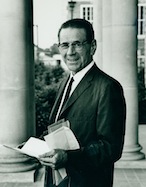 James W. Silver, born in 1907, served as a history professor at the University of Mississippi from 1936 to 1964, chairing the department from 1946 to 1957. Although Silver is best known for his influential Mississippi: The Closed Society (1964), Silver was also a historian of the Civil War. He is the author of Confederate Morale and Church Propaganda (1957) and A Life for the Confederacy (1959). Silver concluded his teaching career at Notre Dame.
James W. Silver, born in 1907, served as a history professor at the University of Mississippi from 1936 to 1964, chairing the department from 1946 to 1957. Although Silver is best known for his influential Mississippi: The Closed Society (1964), Silver was also a historian of the Civil War. He is the author of Confederate Morale and Church Propaganda (1957) and A Life for the Confederacy (1959). Silver concluded his teaching career at Notre Dame.
Submitting Books for the Wiley-Silver Prize
Eligibility
The Wiley-Silver Prize in Civil War History will be awarded annually to a scholar’s first book or monograph in Civil War history published in the previous year. For this competition, single-author books or monographs published by scholarly or popular presses in calendar year 2024 are eligible. Books or monographs published by scholarly or popular presses are eligible. Except in extraordinary circumstances, textbooks are not eligible, nor are anthologies or edited works. Works by authors who have previously published a book (on any topic) are not eligible.
How to Submit a Book
The Center and each prize committee member must receive one copy of the book by Friday, February 21, 2025. Entries may be submitted by publishers or authors. Each entry must be clearly labeled “Wiley-Silver Prize Entry.” If the book carries a copyright date different from the publication date, publishers must enclose a letter explaining the eligibility of the entry.
Results will be announced by August 1, 2025.
Send submissions to:
- Center for Civil War Research
Department of History
310 Bishop Hall
P.O. Box 1848
University, MS 38677 - Andrew Lang
Department of History
208 Allen Hall
Mailbox H
Mississippi State, MS 39762 - Joseph Glatthaar
501 Morgan Creek Rd.
Chapel Hill, NC 27517 - Amy Murrell Taylor (Wiley-Silver Prize)
Department of History
1715 Patterson Office Tower
University of Kentucky
Lexington, KY 40506


